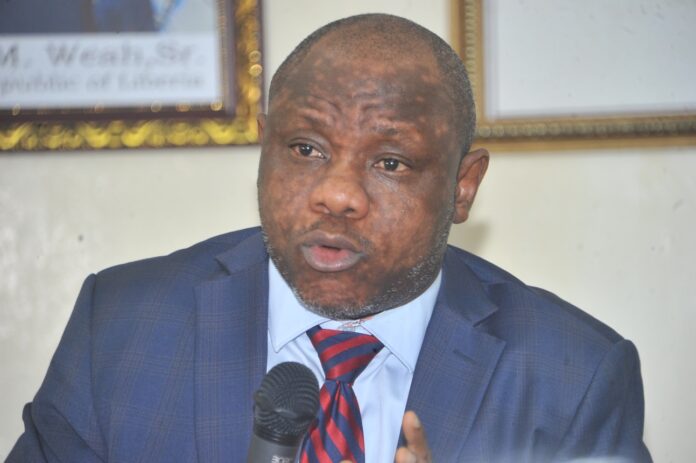ROME, ITALY – Addressing the World Food Forum 2024 in Rome on Monday, October 14, President Joseph Nyuma Boakai of Liberia delivered a powerful keynote speech on the growing global food crisis and the urgent need to reform agrifood systems. Themed “Good Food Today, Good Food Tomorrow,” the forum brought together world leaders, experts, and policymakers to discuss solutions for food insecurity and sustainable agriculture.
President Boakai began his address by acknowledging the severity of the food crisis, particularly in Africa, where hunger and malnutrition have reached alarming levels. “Today, we are witnessing the rise of hunger and malnutrition across various parts of the globe, with Africa tragically at the epicenter of this crisis,” he stated, referencing FAO reports that millions of people across the continent face acute food shortages. He emphasized that despite Africa’s agricultural potential, the continent is plagued by challenges such as climate change, conflict, economic instability, and inadequate investment in agriculture.
Highlighting the importance of decisive action, Boakai declared, “We are not here today simply to highlight the challenges, but to call for concrete action — urgent, impactful steps that will drive tangible change on the ground.” He went on to outline Liberia’s commitment to building a resilient, inclusive agrifood system, sharing insights from his country’s efforts to strengthen its agricultural sector.
Liberia, Boakai explained, is rich in natural resources and biodiversity, located in the Upper Guinea Rainforest region, and blessed with ample rainfall. As part of its Nationally Determined Contribution (NDC), the country is dedicated to reducing greenhouse gas emissions by 64% by 2030. Yet, despite its environmental contributions, Liberia remains dependent on agriculture for its food security and economic development.
The president highlighted Liberia’s plans to invest in sustainable farming practices, stating, “We must prioritize funding for agricultural innovation and sustainable farming practices. By equipping farmers with the right tools, knowledge, and resources, we can increase crop yields, diversify production, and ensure farmers can lift themselves out of poverty.” Agriculture accounts for nearly 29% of Liberia’s GDP and supports 68% of its population, making it a cornerstone of the country’s economy.
One of the key initiatives Boakai unveiled was Liberia’s Agro-Industrial Development Program, centered on oil palm and cocoa cultivation. The program, which aims to develop 100,000 hectares of land for palm oil production, seeks to address a regional shortfall of over 40,000 tons of palm oil. Boakai emphasized that the project would boost food security, create jobs, and attract foreign investments while promoting sustainable farming practices.
“We are not just talking about agriculture; we are talking about enhancing our food security and securing a prosperous future for all Liberians,” Boakai stressed. The initiative will include processing, refining, and marketing oil palm products, supported by technology and agricultural research.
President Boakai also called for international collaboration and partnerships to address global food insecurity. He outlined four key areas for urgent action: supporting local food systems, promoting climate resilience, strengthening social safety nets, and fostering global collaboration. “We must engage in cross-border collaborations, share best practices, and foster partnerships between governments, civil society, private sector stakeholders, and international organizations,” he urged.
As the global population continues to grow and climate change further threatens food systems, Boakai warned that the time for rhetoric had passed. “It is now the moment for robust, unified action. We have the knowledge, the resources, and the humanity to tackle this crisis head-on,” he declared. On behalf of the Liberian people, Boakai reaffirmed his commitment to contributing to global efforts toward achieving the Sustainable Development Goals and Africa’s Agenda 2063.
Concluding his address, President Boakai delivered a heartfelt message, emphasizing the shared responsibility to combat hunger. “Together, let us foster a future where no child, no parent, and no community is left to face the anguish of hunger. Our actions today can help shape the landscape of tomorrow,” he urged.
Boakai’s keynote resonated with attendees, reinforcing Liberia’s role in the global fight for food security and sustainable development.







